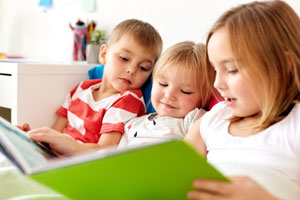 Did you know: statistics show that in the United States, 9 out of every 10 kids who are deaf are born to hearing parents. Many of these parents have very little prior knowledge about deafness, and probably even less exposure to sign language and Deaf Culture.
Did you know: statistics show that in the United States, 9 out of every 10 kids who are deaf are born to hearing parents. Many of these parents have very little prior knowledge about deafness, and probably even less exposure to sign language and Deaf Culture.
These parents might fear that they won’t be able to communicate with their child, or that their child will be limited without the ability to hear. Like all parents, the hearing parents of deaf children want to do the right thing and give their kid the best opportunities available… But what does this really mean?
Raising deaf children with access to sign language has been shown to yield benefits in many areas of life, even for children working to acquire spoken language skills or those who have Cochlear Implants. Although it may require more effort from everyone in the family, creating a bilingual household where spoken and signed language coexist presents an ideal solution for overcoming communication barriers.
5 Great Reasons to Establish a Bilingual Household
1. Helps Development of Personality
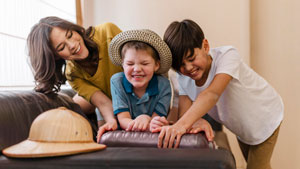 From the time we are infants, we use language to create our narrative of the world and to establish our place within it. Studies have shown that not only do deaf/ HoH babies benefit from early exposure to signed language— signing allows ALL babies to express their needs and desires long before they are able to verbalize them, since humans develop tactile and motor skills at a much earlier age.
From the time we are infants, we use language to create our narrative of the world and to establish our place within it. Studies have shown that not only do deaf/ HoH babies benefit from early exposure to signed language— signing allows ALL babies to express their needs and desires long before they are able to verbalize them, since humans develop tactile and motor skills at a much earlier age.
While children develop their sense of self, it is important that they are able to label both internal and external stimuli. Visual language allows children who are deaf to identify thoughts and feelings using their natural senses, which can be less frustrating for these children during their early developmental years.
According to the United Nations Committee on the Rights of Persons with Disabilities, article 30 section 4, people who are deaf are entitled, as a basic human right, to have access to their linguistic identity. Research has shown that even children who are learning oral communication methods benefit from family support for ASL, since it encourages a strong sense of identity and can aid in effective personal expression.
2. Build Stronger Family Relationships
 When parents and siblings also know ASL, a child who is deaf has the added benefit of being able to communicate comfortably with the people around them. Learning a new language might seem intimidating at first, but luckily ASL is one of the most fun and interesting languages to acquire because it is so expressive.
When parents and siblings also know ASL, a child who is deaf has the added benefit of being able to communicate comfortably with the people around them. Learning a new language might seem intimidating at first, but luckily ASL is one of the most fun and interesting languages to acquire because it is so expressive.
Spending time together learning sign language as a family can be a positively enriching bonding activity for adults and children, both deaf and hearing alike. For relatives of a child who is deaf, learning ASL can help build a bridge of communication and trust. Knowing sign language enables siblings a variety of options for communication, thereby deepening these important relationships.
Research has shown that knowing multiple languages increases overall brain activity (it can even help delay the onset of Alzheimer’s and dementia). Language helps open up new perspectives and expands ones’ point of view. When hearing parents take the opportunity to foster a bilingual family, every member benefits!
3. Educational Benefits
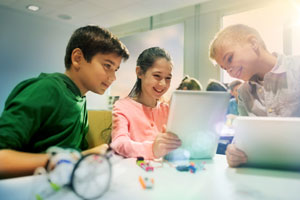 Researchers from the 1960s through to the 1990s (most notably Mark T. Greenberg and Carol A. Kusché ) observed and documented that deaf children from deaf parents academically outperformed their deaf peers with hearing parents. Benefitting from early exposure to a language which they could feel comfortable using, the deaf children from deaf households demonstrated higher levels of literacy and reading comprehension.
Researchers from the 1960s through to the 1990s (most notably Mark T. Greenberg and Carol A. Kusché ) observed and documented that deaf children from deaf parents academically outperformed their deaf peers with hearing parents. Benefitting from early exposure to a language which they could feel comfortable using, the deaf children from deaf households demonstrated higher levels of literacy and reading comprehension.
According to NAD, “recent evidence from multiple studies shows that profoundly deaf children possess high levels of language organization if they had early exposure to a visual language… Specifically, they found two factors correlated with reading achievement: ASL fluency and exposure to print… While spoken language phonological coding may not predict reading ability very well in deaf children, signed language phonological coding is a stronger factor in development of reading ability. These findings suggest that an emphasis on visual language development activities as a path to successful reading acquisition may serve as a better model of literacy development for deaf children.”
4. Social Benefits
When a child is able to develop their social skills from an early age without restriction, they can experiment with the boundaries of nuanced human interactions. Deaf children who use ASL with their families are less likely to report feeling isolated, and are therefore more likely to be outgoing in other social situations. This snowball effect of self-confidence can lead to later success in personal and professional networking.
5. Forming a Cultural Identity
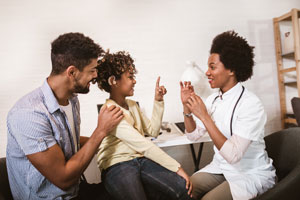 Aside from boosting personal awareness and self esteem, having the ability to connect with the larger Deaf community gives children who are deaf the option to communicate with other people who share the common experience of deafness. Offering deaf/HoH children the advantage of bilingualism provides them with the ability to access deaf society if they so choose.
Aside from boosting personal awareness and self esteem, having the ability to connect with the larger Deaf community gives children who are deaf the option to communicate with other people who share the common experience of deafness. Offering deaf/HoH children the advantage of bilingualism provides them with the ability to access deaf society if they so choose.
According to research by Tingting Gao, “a common language fosters understanding and respect among deaf people and the existence of this culture provides a strong identity that deaf people can adopt in the face of a communication barrier between themselves and the rest of society.” Often, deaf people who grow up learning oral communication discover ASL at some point in their life. Many of these individuals report this discovery as an important experience!
“By learning Sign Language and interacting with the Deaf community, a deaf person can reverse all of his previous misconceptions regarding deaf people’s subaltern state relative to hearing people,” continues Gao. “More importantly, it chases away whatever doubts or uncertainties the deaf individual has had about himself, including the view that deafness is abnormal.”
Resources
There are many excellent ways to begin learning ASL! Please check out THIS BLOG for some great free and low cost options to get you started.
Other resources include
– The ASL App
– Signing Savvy
But, off course, the most effective way to learn ASL is to really immerse yourself. By working with a Deaf individual or a native ASL user, you can delve into the rich tapestry of Deaf Culture, gaining a deeper understanding of what it means to be deaf in America.
SignNexus is pleased to offer personal ASL training for individuals or groups. Learn sign language on your own time, at your own pace, from the comfort of your own home or a public location in NYC. Learn to sign while exploring Deaf culture and current issues in the community. Get an in depth perspective on deafness and deaf communication from our qualified instructors.
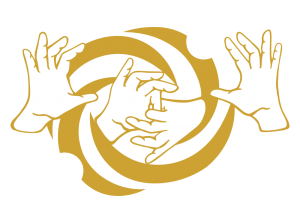



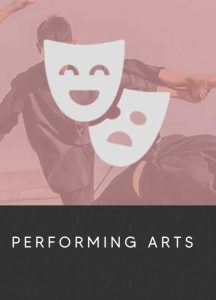

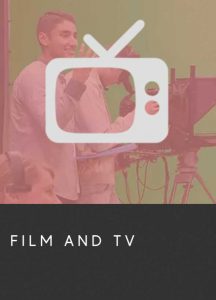
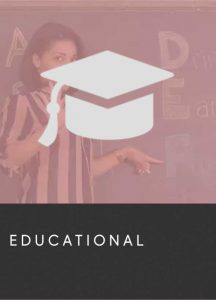
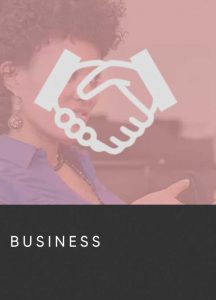


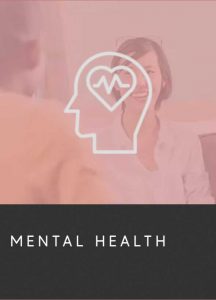
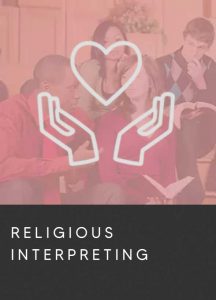
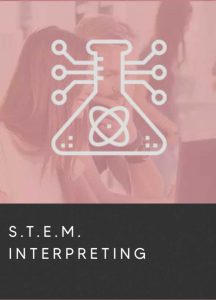
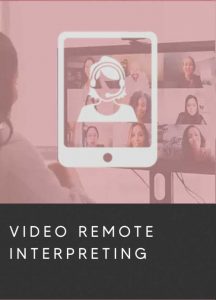
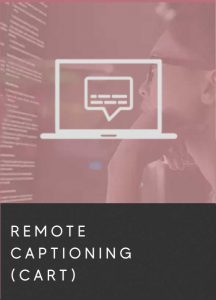

 Did you know: statistics show that in the United States, 9 out of every 10 kids who are deaf are born to hearing parents. Many of these parents have very little prior knowledge about deafness, and probably even less exposure to sign language and Deaf Culture.
Did you know: statistics show that in the United States, 9 out of every 10 kids who are deaf are born to hearing parents. Many of these parents have very little prior knowledge about deafness, and probably even less exposure to sign language and Deaf Culture. From the time we are infants, we use language to create our narrative of the world and to establish our place within it. Studies have shown that not only do deaf/ HoH babies benefit from early exposure to signed language—
From the time we are infants, we use language to create our narrative of the world and to establish our place within it. Studies have shown that not only do deaf/ HoH babies benefit from early exposure to signed language—  When parents and siblings also know ASL, a child who is deaf has the added benefit of being able to communicate comfortably with the people around them. Learning a new language might seem intimidating at first, but luckily ASL is one of the most fun and interesting languages to acquire because it is so expressive.
When parents and siblings also know ASL, a child who is deaf has the added benefit of being able to communicate comfortably with the people around them. Learning a new language might seem intimidating at first, but luckily ASL is one of the most fun and interesting languages to acquire because it is so expressive. Researchers from the 1960s through to the 1990s (most notably
Researchers from the 1960s through to the 1990s (most notably  Aside from boosting personal awareness and self esteem, having the ability to connect with the larger Deaf community gives children who are deaf the option to communicate with other people who share the common experience of deafness. Offering deaf/HoH children the advantage of bilingualism provides them with the ability to access deaf society if they so choose.
Aside from boosting personal awareness and self esteem, having the ability to connect with the larger Deaf community gives children who are deaf the option to communicate with other people who share the common experience of deafness. Offering deaf/HoH children the advantage of bilingualism provides them with the ability to access deaf society if they so choose. This holiday season, try to imagine what it would be like if no one sitting around the dinner table took any interest in getting to know you. What if no one in your family asked about your life, or seemed to care how you were doing? Picture how the holidays would be different if you were excluded from the stories, the jokes, and the games that your family shares.
This holiday season, try to imagine what it would be like if no one sitting around the dinner table took any interest in getting to know you. What if no one in your family asked about your life, or seemed to care how you were doing? Picture how the holidays would be different if you were excluded from the stories, the jokes, and the games that your family shares. As a CODA (Child of Deaf Adults), I spent many family events doing the best I could to provide my Deaf mother and siblings with access to conversations. CODAs often fall into the role of interpreter for deaf family members, and we usually don’t mind doing it. But one person can not realistically provide full access to communication when there are multiple deaf and hearing parties. Additionally, a person who is involved in the social dynamics of the family can not facilitate communication in an impartial way. For example a CODA might alter one family member’s actual message to avoid hurting another relative’s feelings.
As a CODA (Child of Deaf Adults), I spent many family events doing the best I could to provide my Deaf mother and siblings with access to conversations. CODAs often fall into the role of interpreter for deaf family members, and we usually don’t mind doing it. But one person can not realistically provide full access to communication when there are multiple deaf and hearing parties. Additionally, a person who is involved in the social dynamics of the family can not facilitate communication in an impartial way. For example a CODA might alter one family member’s actual message to avoid hurting another relative’s feelings. For my deaf family members, holiday events were always pretty boring. Any conversations they did have with hearing family members were limited and generally basic. So last year, for my mother’s birthday, I
For my deaf family members, holiday events were always pretty boring. Any conversations they did have with hearing family members were limited and generally basic. So last year, for my mother’s birthday, I  But for my mother, a whole lifetime of feeling excluded could not be erased in one day. While she appreciated the way the interpreters connected the family, it was hard to make up for all the family gatherings spent as an outsider. At the end of the party, everyone kept asking “why haven’t we hired interpreters before?” It hadn’t occurred to them what a big difference the ability to truly communicate would make.
But for my mother, a whole lifetime of feeling excluded could not be erased in one day. While she appreciated the way the interpreters connected the family, it was hard to make up for all the family gatherings spent as an outsider. At the end of the party, everyone kept asking “why haven’t we hired interpreters before?” It hadn’t occurred to them what a big difference the ability to truly communicate would make. When you provide professional interpreters, you actively welcome your deaf relatives into a hearing space.You invite them into your family– all the laughs and debates and reminiscing that bond us with our kin. Providing communication access for deaf relatives sends a clear message that their participation is valued. It was such a joy to watch my deaf siblings and little nieces get to know my hearing aunts, breaking through generations of communication barriers, making real connections. It’s hard to believe they all went so long without sharing these moments!
When you provide professional interpreters, you actively welcome your deaf relatives into a hearing space.You invite them into your family– all the laughs and debates and reminiscing that bond us with our kin. Providing communication access for deaf relatives sends a clear message that their participation is valued. It was such a joy to watch my deaf siblings and little nieces get to know my hearing aunts, breaking through generations of communication barriers, making real connections. It’s hard to believe they all went so long without sharing these moments!
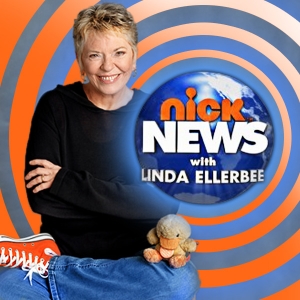 The pediatrician just informed you that your child is profoundly deaf.
The pediatrician just informed you that your child is profoundly deaf.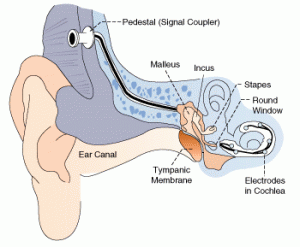 ome families choose to assimilate their child to a hearing lifestyle by implanting a device called a cochlear implant into the skull, which stimulates the auditory nerve and allow the brain to “hear.” Sammy is a CI recipient from a hearing family who jokingly refers to herself as “part robot.” She was not born deaf, but her hearing deteriorated throughout childhood and, at 12 years old, she made the choice to have CI surgery. According to Sammy, her parents presented the pros and cons, and she strongly feels a CI was the right choice for her. She attends school with all other hearing students and plays on a basketball team, insisting she doesn’t need to know ASL because she can hear. Cici also comes from a hearing family, she lost her hearing as a baby. Her parents elected to send her to a school for deaf children that focuses on teaching English and oral communication, so she never learned any ASL. At 5 years old she received her CI. “It was hard to learn to speak,” she says, but she feels very grateful that she did because it allows her to communicate with her family and non-deaf friends. Cici is a ballet and tap dancer who feels that deafness is a disability that her CI and hearing aid help her overcome.
ome families choose to assimilate their child to a hearing lifestyle by implanting a device called a cochlear implant into the skull, which stimulates the auditory nerve and allow the brain to “hear.” Sammy is a CI recipient from a hearing family who jokingly refers to herself as “part robot.” She was not born deaf, but her hearing deteriorated throughout childhood and, at 12 years old, she made the choice to have CI surgery. According to Sammy, her parents presented the pros and cons, and she strongly feels a CI was the right choice for her. She attends school with all other hearing students and plays on a basketball team, insisting she doesn’t need to know ASL because she can hear. Cici also comes from a hearing family, she lost her hearing as a baby. Her parents elected to send her to a school for deaf children that focuses on teaching English and oral communication, so she never learned any ASL. At 5 years old she received her CI. “It was hard to learn to speak,” she says, but she feels very grateful that she did because it allows her to communicate with her family and non-deaf friends. Cici is a ballet and tap dancer who feels that deafness is a disability that her CI and hearing aid help her overcome. Picture this: you are a little kid growing up, constantly discovering incredible new things about the world. Now imagine being surrounded every day by people who do not talk to you, tell you stories, or answer your millions of questions. These people are your own parents and siblings. You all live in the same home, yet they hardly communicate with you. They are not able to teach you, guide you, or to provide comforting words when you need them. In fact, they mostly avoid you. This is the experience of many deaf children.
Picture this: you are a little kid growing up, constantly discovering incredible new things about the world. Now imagine being surrounded every day by people who do not talk to you, tell you stories, or answer your millions of questions. These people are your own parents and siblings. You all live in the same home, yet they hardly communicate with you. They are not able to teach you, guide you, or to provide comforting words when you need them. In fact, they mostly avoid you. This is the experience of many deaf children. So, instead of accepting the perfect gift they have been given and embracing the opportunity to explore deaf communication, hearing parents might immediately label their beautiful deaf newborn as defective. They might hunt for a way to “fix” their baby, or try teaching their child to communicate using sound like “normal” people. Or maybe they simply abandon hope that they’ll ever be able to relate to their deaf child at all. This truly breaks my heart.
So, instead of accepting the perfect gift they have been given and embracing the opportunity to explore deaf communication, hearing parents might immediately label their beautiful deaf newborn as defective. They might hunt for a way to “fix” their baby, or try teaching their child to communicate using sound like “normal” people. Or maybe they simply abandon hope that they’ll ever be able to relate to their deaf child at all. This truly breaks my heart. Growing up the only deaf person in your household can be extremely isolating. If your family chooses not to learn sign language, it is hard to express yourself comfortably. For my mother, the opportunity to communicate with her parents and siblings just felt like it came too late. After a lifetime of feeling excluded from your own family, believing they never really got to know you, how do you make up for lost time? What is there to talk about?
Growing up the only deaf person in your household can be extremely isolating. If your family chooses not to learn sign language, it is hard to express yourself comfortably. For my mother, the opportunity to communicate with her parents and siblings just felt like it came too late. After a lifetime of feeling excluded from your own family, believing they never really got to know you, how do you make up for lost time? What is there to talk about?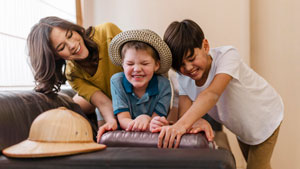 Deafness doesn’t have to be isolating. Since I was raised in a deaf family, I can tell you: deafness is nothing to be afraid of! The ability to hear sound is not what makes a person whole. It is not what gives a person their personality. The ability to hear sound is not what determines a person’s intelligence, and it doesn’t have to limit one’s life. Perhaps not enough hearing people take note of the deaf community members living happy lives around them. There are plenty of successful business owners, artists, and athletes who use sign language to communicate.
Deafness doesn’t have to be isolating. Since I was raised in a deaf family, I can tell you: deafness is nothing to be afraid of! The ability to hear sound is not what makes a person whole. It is not what gives a person their personality. The ability to hear sound is not what determines a person’s intelligence, and it doesn’t have to limit one’s life. Perhaps not enough hearing people take note of the deaf community members living happy lives around them. There are plenty of successful business owners, artists, and athletes who use sign language to communicate. Sign language is the most natural form of communication for deaf people around the globe.
Sign language is the most natural form of communication for deaf people around the globe. 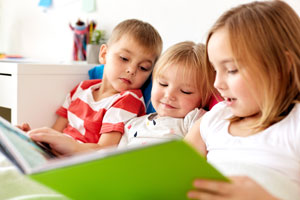 I have 10 years experience working with toddlers and I am professionally certified in all levels of ASL, including baby signs.
I have 10 years experience working with toddlers and I am professionally certified in all levels of ASL, including baby signs. 





